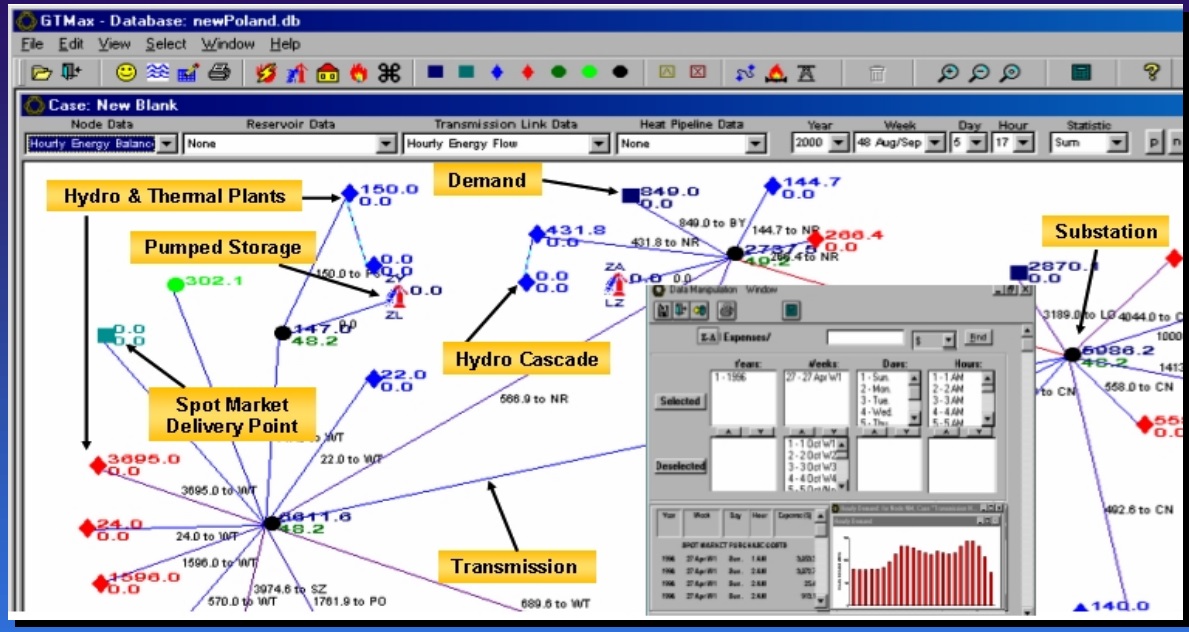Difference between revisions of "GCDAMP- GTMAX"
Cellsworth (Talk | contribs) |
Cellsworth (Talk | contribs) |
||
| Line 49: | Line 49: | ||
#GTMax-Lite (and GTMax) has been used successfully to model operations at Glen Canyon Dam and other Salt Lake City Area Integrated Project dams for many years. (SDM workshop-2013) | #GTMax-Lite (and GTMax) has been used successfully to model operations at Glen Canyon Dam and other Salt Lake City Area Integrated Project dams for many years. (SDM workshop-2013) | ||
| − | |||
| − | |||
| − | |||
| − | |||
| − | |||
| − | |||
| − | |||
| − | |||
| − | |||
| − | |||
| − | |||
| − | |||
| − | |||
| − | |||
| − | |||
| − | |||
| − | |||
| − | |||
| − | |||
| − | |||
| − | |||
| − | |||
| − | |||
| − | |||
| − | |||
| − | |||
| − | |||
| − | |||
|} | |} | ||
| Line 111: | Line 83: | ||
|- | |- | ||
| − | ! <h2 style="margin:0; background:#cedff2; font-size:120%; font-weight:bold; border:1px solid #a3b0bf; text-align:left; color:#000; padding:0.2em 0.4em;"> | + | ! <h2 style="margin:0; background:#cedff2; font-size:120%; font-weight:bold; border:1px solid #a3b0bf; text-align:left; color:#000; padding:0.2em 0.4em;">Revenue Versus Cost</h2> |
|- | |- | ||
|style="color:#000;"| | |style="color:#000;"| | ||
| + | |||
| + | In addition to numerous references to maximizing revenues and improving profits, the author(s) state | ||
| + | that “minimizing costs may not be the most important objective”, and proceed to suggest that | ||
| + | maximizing revenues would constitute a mathematically equivalent approach. | ||
| + | |||
| + | From a WAPA customer perspective, we believe that there is a significant policy-level difference | ||
| + | between a statutory obligation that requires WAPA to market federal project hydropower at the lowest | ||
| + | possible rates to consumers consistent with sound business practices, and a revenue maximization goal. | ||
| + | On one hand, the author(s) correctly observe that the objective function of the GT Max model is to | ||
| + | minimize cost. In this regard, we believe that WAPA and Argonne have correctly oriented the tool so as | ||
| + | to be reflective of WAPA’s legal obligation. | ||
| + | |||
| + | On the other hand, the author(s) describe the business area where 100% of WAPA’s customers reside | ||
| + | as “the regulated IOU business model”, which suggests to us that the author(s) may not understand | ||
| + | the public power characteristics of WAPA’s customers. | ||
| + | |||
| + | The foregoing observations notwithstanding, the real damage in the revenue versus cost discussion is | ||
| + | the promulgation of the misleading suggestion that utility business entities (WAPA, WAPA’s customers, | ||
| + | other public power entities, IOUs, etc.) are exclusively focused on maximizing profits. This is | ||
| + | particularly harmful in the AMP arena, where the majority of participants are not utility business | ||
| + | professionals, and a perception that “profits trump natural resources” could be reinforced. | ||
| + | As in items 3-4 above, the promotion of false perceptions such as this serves only to establish or | ||
| + | strengthen barriers among AMP stakeholders who might otherwise be able to collaborate more | ||
| + | effectively. [https://www.usbr.gov/uc/progact/amp/pdfs/GTMaxModel/Workshop-Particip-Resp.pdf] | ||
Revision as of 09:42, 15 April 2024
|
|
|
| -- |
-- |
-- |
|---|
|
|
